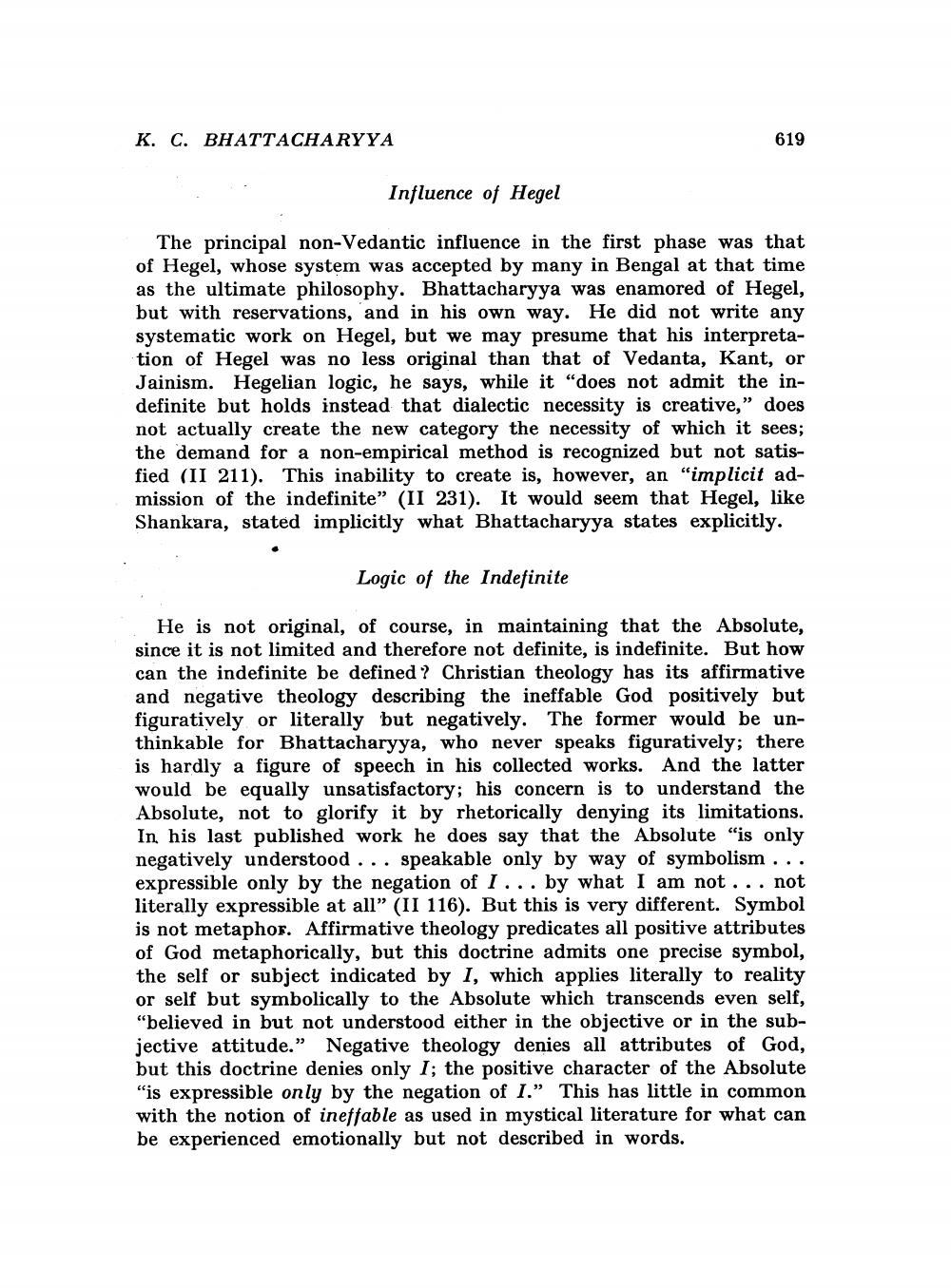Book Title: Search For Absolute In Neo Vedanta Author(s): George B Burch Publisher: George B Burch View full book textPage 9
________________ K. C. BHATTACHARYYA 619 Influence of Hegel The principal non-Vedantic influence in the first phase was that of Hegel, whose system was accepted by many in Bengal at that time as the ultimate philosophy. Bhattacharyya was enamored of Hegel, but with reservations, and in his own way. He did not write any systematic work on Hegel, but we may presume that his interpretation of Hegel was no less original than that of Vedanta, Kant, or Jainism. Hegelian logic, he says, while it "does not admit the indefinite but holds instead that dialectic necessity is creative," does not actually create the new category the necessity of which it sees; the demand for a non-empirical method is recognized but not satisfied (II 211). This inability to create is, however, an "implicit admission of the indefinite” (II 231). It would seem that Hegel, like Shankara, stated implicitly what Bhattacharyya states explicitly. Logic of the Indefinite He is not original, of course, in maintaining that the Absolute, since it is not limited and therefore not definite, is indefinite. But how can the indefinite be defined ? Christian theology has its affirmative and negative theology describing the ineffable God positively but figuratively or literally but negatively. The former would be unthinkable for Bhattacharyya, who never speaks figuratively; there is hardly a figure of speech in his collected works. And the latter would be equally unsatisfactory; his concern is to understand the Absolute, not to glorify it by rhetorically denying its limitations. In his last published work he does say that the Absolute "is only negatively understood ... speakable only by way of symbolism ... expressible only by the negation of I... by what I am not ... not literally expressible at all” (II 116). But this is very different. Symbol is not metaphor. Affirmative theology predicates all positive attributes of God metaphorically, but this doctrine admits one precise symbol, the self or subject indicated by I, which applies literally to reality or self but symbolically to the Absolute which transcends even self, "believed in but not understood either in the objective or in the subjective attitude.” Negative theology denies all attributes of God, but this doctrine denies only 1; the positive character of the Absolute "is expressible only by the negation of 1." This has little in common with the notion of ineffable as used in mystical literature for what can be experienced emotionally but not described in words.Page Navigation
1 ... 7 8 9 10 11 12 13 14 15 16 17 18 19 20 21 22 23 24 25 26 27 28 29 30 31 32 33 34 35 36 37 38 39 40 41 42 43 44 45 46 47 48 49 50 51 52 53 54 55 56 57
